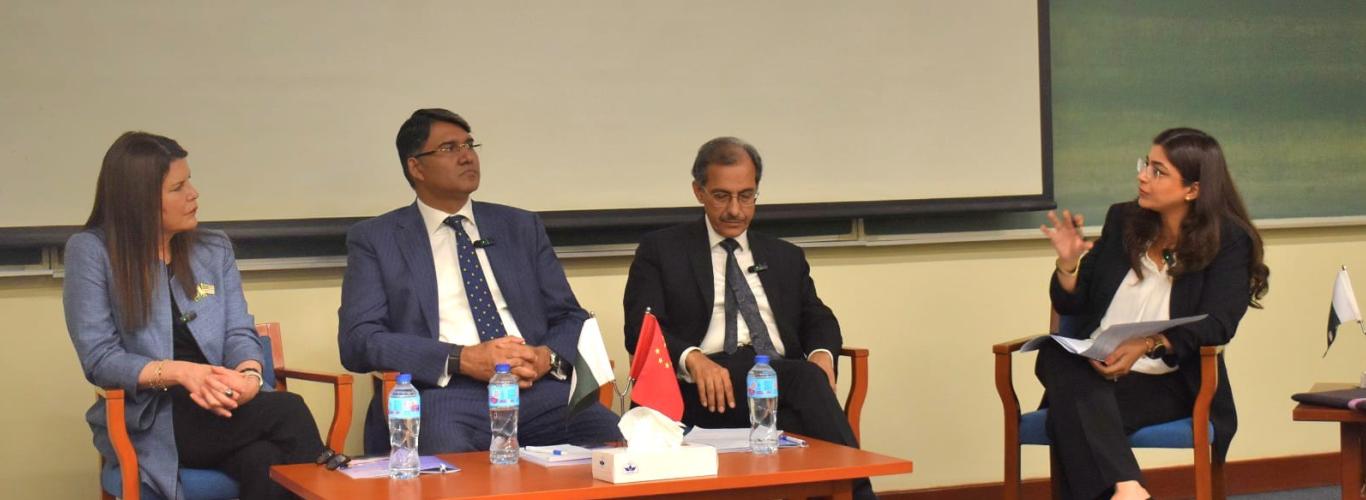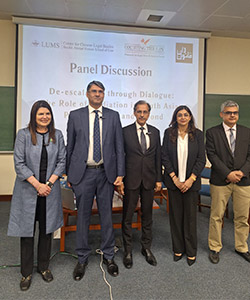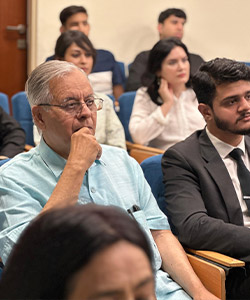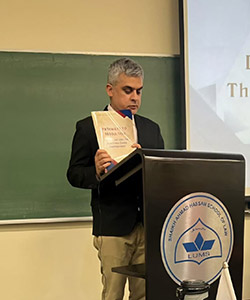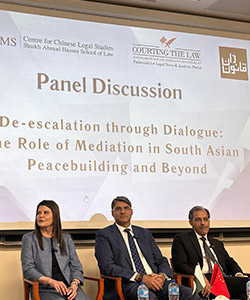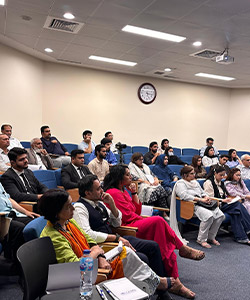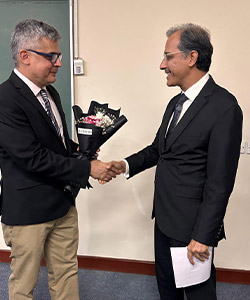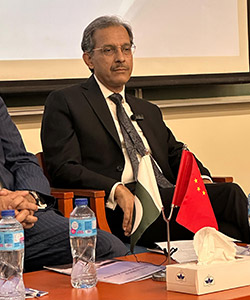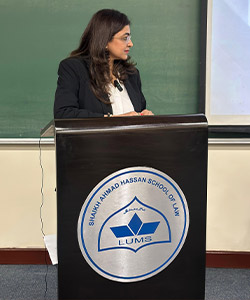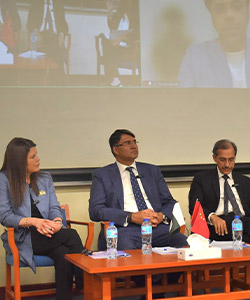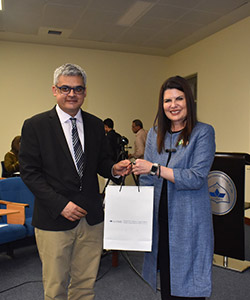CCLS Launches Landmark White Paper to Promote ADR for Pakistan-China Partnership
On 27th May, 2025, experts gathered for a panel discussion on “De-escalation through Dialogue: The Role of Mediation in South Asian Peace-Building and Beyond” at the Centre for Chinese Legal Studies, Shaikh Ahmad Hassan School of Law, LUMS, in collaboration with Courting the Law. The discussion focused on the role of mediation, dialogue, and trade in easing tensions in the region and promoting peace. The Indus Waters Treaty (IWT) served as a key reference point during the conversation.
Dr. Sikander Ahmad Shah, Director of the Centre for Chinese Legal Studies, officially launched the white paper titled “Pathways to Resolution: Advancing ADR for Pakistan-China Partnership,” recognizing its timely significance. The paper addresses two interconnected goals: integrating Chinese ADR practices into Pakistan’s domestic framework and collaboratively developing a tailored ADR mechanism for CPEC. The recommendations focus on strengthening Pakistan’s legal infrastructure while ensuring the cultural and operational alignment necessary for cross-border cooperation and management.
This research initiative was made possible with the generous support of the Consulate General of the People's Republic of China in Lahore. Their encouragement and support have enabled an in-depth exploration of ADR mechanisms, underscoring the importance of mutual trust and sustainable frameworks for CPEC’s success.
Moderated by Barrister Habeeba Ahmad Naseer, the panel featured Dr. Jo. D. Chitlik; Senior Fellow at the Center for the Study of Law & Religion, Emory University, and Fulbright Specialist Alumni (U.S. Department of State), Justice Shahid Kareem; Judge, Lahore High Court | Member, ADR Committee of the Supreme Court of Pakistan, Barrister Taimur Malik; Founder of Courting the Law and Former Global Equity Partner at Clyde & Co and Dr. Rizwan Naseer; Senior Research Fellow and Director of Research & Development at the Institute of Regional Studies (IRS),
Dr. Jo Chitlik, add, highlighted the importance of understanding the economic costs of conflict and stressed that trade, while a valuable mediation tool, requires political will and mutual trust to succeed. She noted that mediation frameworks focusing on shared interests could open pathways for peaceful engagement in the region.
Hon’able Justice Shahid Kareem, add, emphasized the judiciary’s active role in promoting mediation, particularly under Order IX-B of the Civil Procedure Code. He cited the inclusion of mediation in income tax disputes under Section 134A of the Income Tax Ordinance and lauded its success. Additionally, he highlighted the pivotal contributions of Hon’able Justice Mansoor Ali Shah and Hon’able Justice Jawad Hassan in advancing alternative dispute resolution (ADR) in Pakistan. He also called for the revival of the lapsed Punjab Commercial Courts Ordinance to strengthen commercial dispute resolution.
Barrister Taimur Malik, founding partner of Courting the Law and Qanoondan, discussed the ongoing Gaza crisis, urging major global actors such as the EU, China, and the U.S. to play proactive roles in mediation and peaceful conflict resolution. He underscored a core principle of mediation: it cannot be forced; parties must voluntarily accept resolutions for it to be a success. He also emphasized on the role of technology in making mediation more main stream and accessible whilst highlighting the use of A.I. in successfully mediating everyday online e-commerce related disputes.
Dr. Rizwan Naseer, Senior Research Fellow and Director of Research & Development at the Institute of Regional Studies, spoke about China’s mediation approach which is centered on diplomacy, economic incentives, and trust-building. He highlighted China’s philosophy of long-term engagement and neutrality, citing the Shanghai Cooperation Organization (SCO) as a platform for regional cooperation and conflict resolution in Asia. Dr. Naseer stressed that geopolitical interests must be set aside for mediation to succeed and pointed to China’s role in facilitating economic diplomacy in complex conflicts, such as between Iran and Saudi Arabia.
The panel also acknowledged Pakistan’s recent accession to the Singapore Convention on Mediation, enhancing the enforcement of cross-border mediated settlements.
The event was widely attended by faculty from various universities, members of the Pakistan-China Joint Chamber of Commerce and Industry, lawyers, practitioners, as well as LUMS faculty and students. A particular interest from members of the Women in Law Initiative was observed, reflecting the growing role of female legal professionals in mediation and justice reform in Pakistan.
The panelists expressed their appreciation to the organizers for focusing on important issues and recommended additional sessions on the role of judicial activism and legal reform in addressing climate change. This event at LUMS represents a key step in advancing mediation and trade as effective, non-military approaches to conflict resolution in South Asia.

